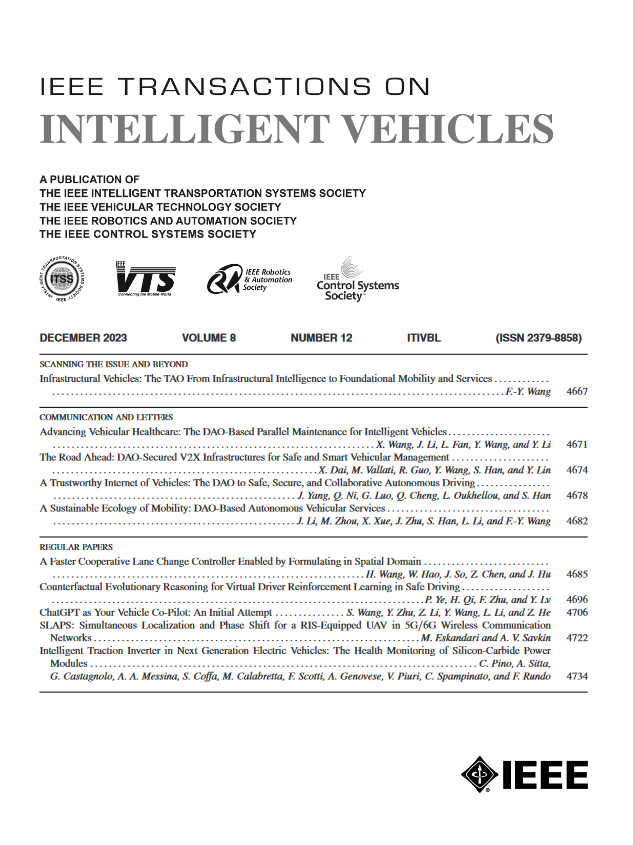汽车电池健康状态估计的点对点个性化联邦迁移学习
IF 14.3
1区 工程技术
Q1 COMPUTER SCIENCE, ARTIFICIAL INTELLIGENCE
引用次数: 0
摘要
提高电动汽车运行过程中电池的可靠性和安全性一直是最新研究的主要焦点,导致各种数据驱动技术的发展,用于电池健康状态(SOH)估计。然而,这些植根于传统集中式计算范式的方法,在数据需求与隐私保护、健壮性与个性化、可移植性与准确性等方面存在冲突。为了解决这些挑战,本研究提出了一种新的分散联邦迁移学习(FTL)方法P2P-PerFTL,该方法使用点对点通信将局部SOH估计模型聚合到全局模型中,同时在本地保留电池数据,将联邦学习和迁移学习相结合,实现各种工作条件和电池的个性化和可移植性。该算法利用基于域漂移的加权聚合机制构建全局模型,并通过将零件层指定为个性化层,结合域漂移损失,构建了个性化、可转移的神经网络体系结构。通过四种超光速场景的综合案例研究,证明了所提出的P2P-PerFTL可以在不同操作条件和电池类型的本地客户端使用有限的数据量训练出高度精通的SOH估计模型,并且优于其他训练框架。本文章由计算机程序翻译,如有差异,请以英文原文为准。
Peer-to-Peer Personalized Federated Transfer Learning for Battery State of Health Estimation of Vehicles
The enhancement of battery reliability and safety during operational usage for electric vehicles has been a primary focus of state-of-the-art research, leading to the development of various data-driven technologies for battery state-of-health (SOH) estimation. Nevertheless, these approaches, rooted in traditional centralized computing paradigm, grapple with conflicts related to data needs versus privacy protection, robustness versus personalization, and transferability versus accuracy. To address these challenges, this study proposes a novel decentralized federated transfer learning (FTL) method, named P2P-PerFTL, which aggregates local SOH estimation models into a global model using peer-to-peer communication while preserving battery data locally, combining federated learning and transfer learning to realize personalization and transferability within various working conditions and batteries. This algorithm utilizes a domain-shift-based weighted aggregation mechanism for global model formulation, and constructs a personalized and transferable neural network architecture by assigning part layers as personalization layers and incorporating domain shift loss. Through a comprehensive case study with four FTL scenarios, it is demonstrated that the proposed P2P-PerFTL can train a highly proficient SOH estimation model with a limited volume of data from local clients across diverse operational conditions and battery types, and outperforms alternative training frameworks.
求助全文
通过发布文献求助,成功后即可免费获取论文全文。
去求助
来源期刊

IEEE Transactions on Intelligent Vehicles
Mathematics-Control and Optimization
CiteScore
12.10
自引率
13.40%
发文量
177
期刊介绍:
The IEEE Transactions on Intelligent Vehicles (T-IV) is a premier platform for publishing peer-reviewed articles that present innovative research concepts, application results, significant theoretical findings, and application case studies in the field of intelligent vehicles. With a particular emphasis on automated vehicles within roadway environments, T-IV aims to raise awareness of pressing research and application challenges.
Our focus is on providing critical information to the intelligent vehicle community, serving as a dissemination vehicle for IEEE ITS Society members and others interested in learning about the state-of-the-art developments and progress in research and applications related to intelligent vehicles. Join us in advancing knowledge and innovation in this dynamic field.
 求助内容:
求助内容: 应助结果提醒方式:
应助结果提醒方式:


